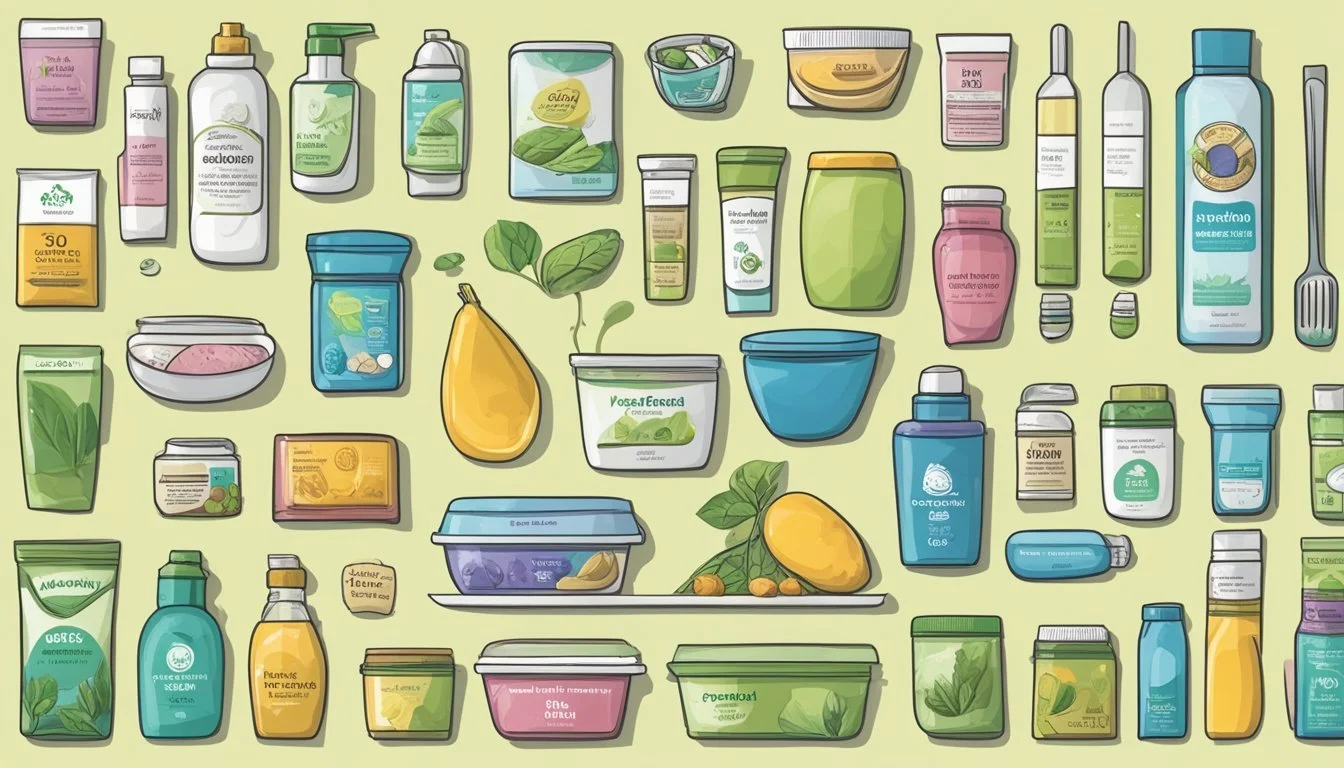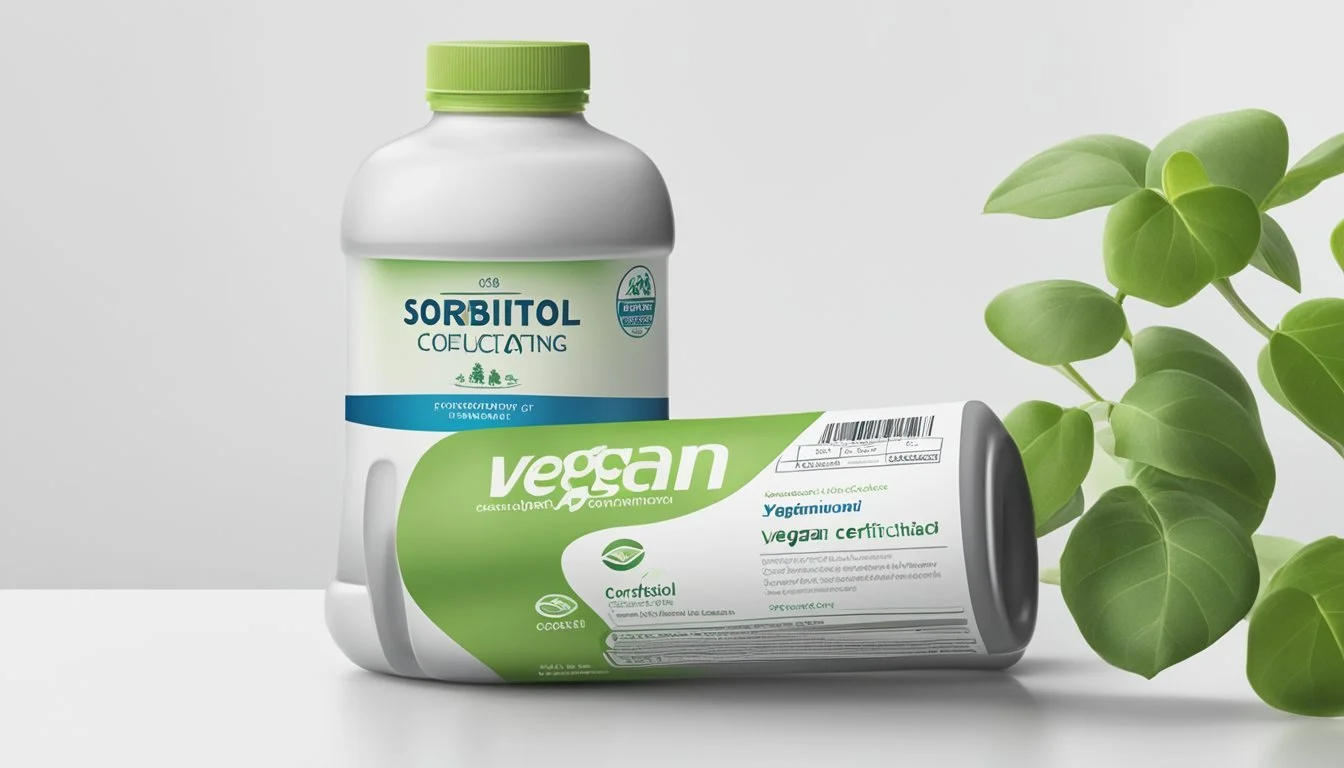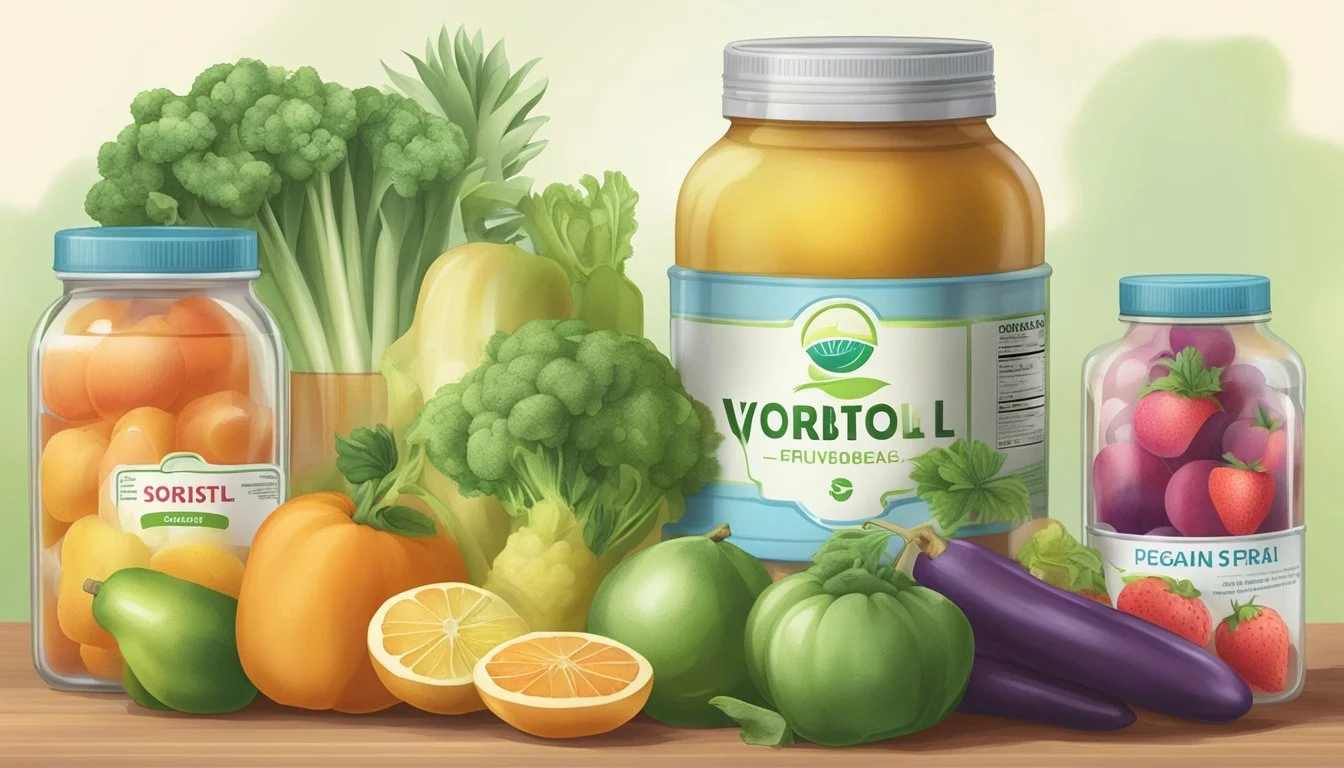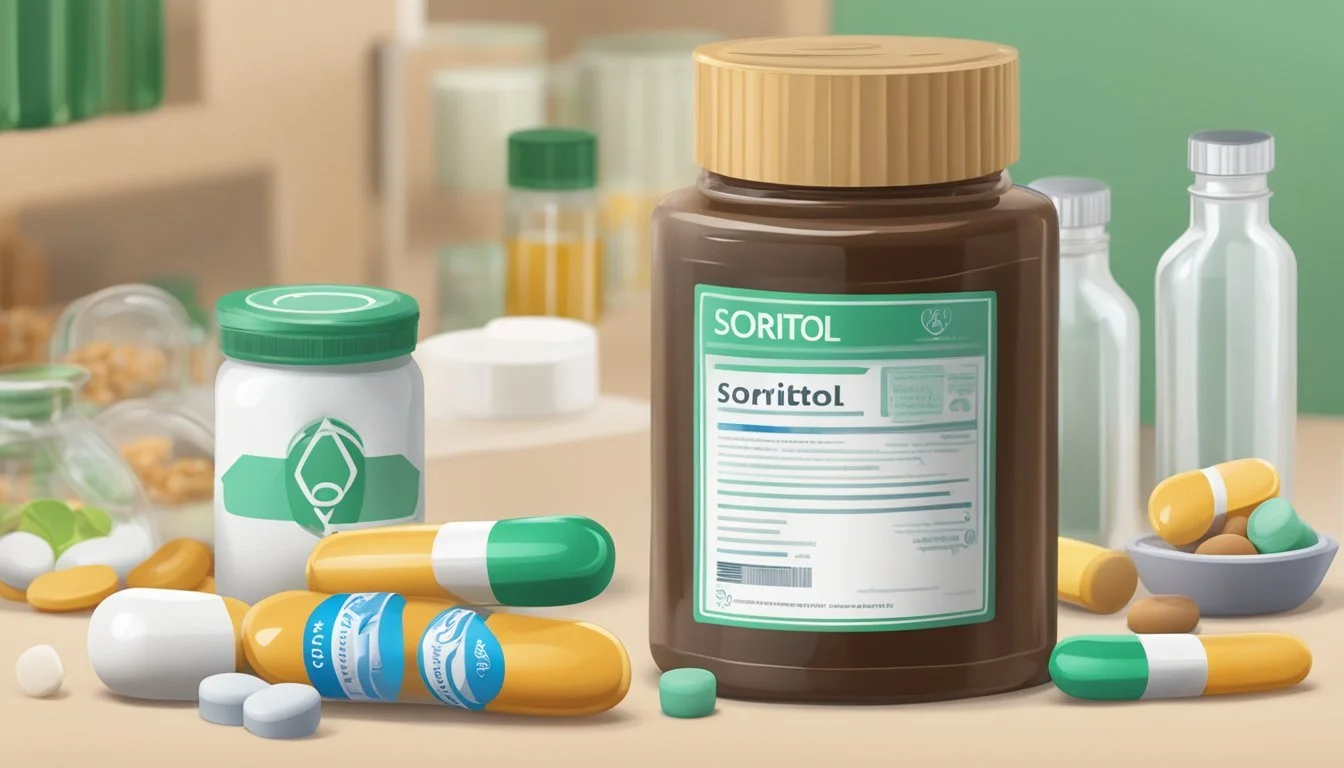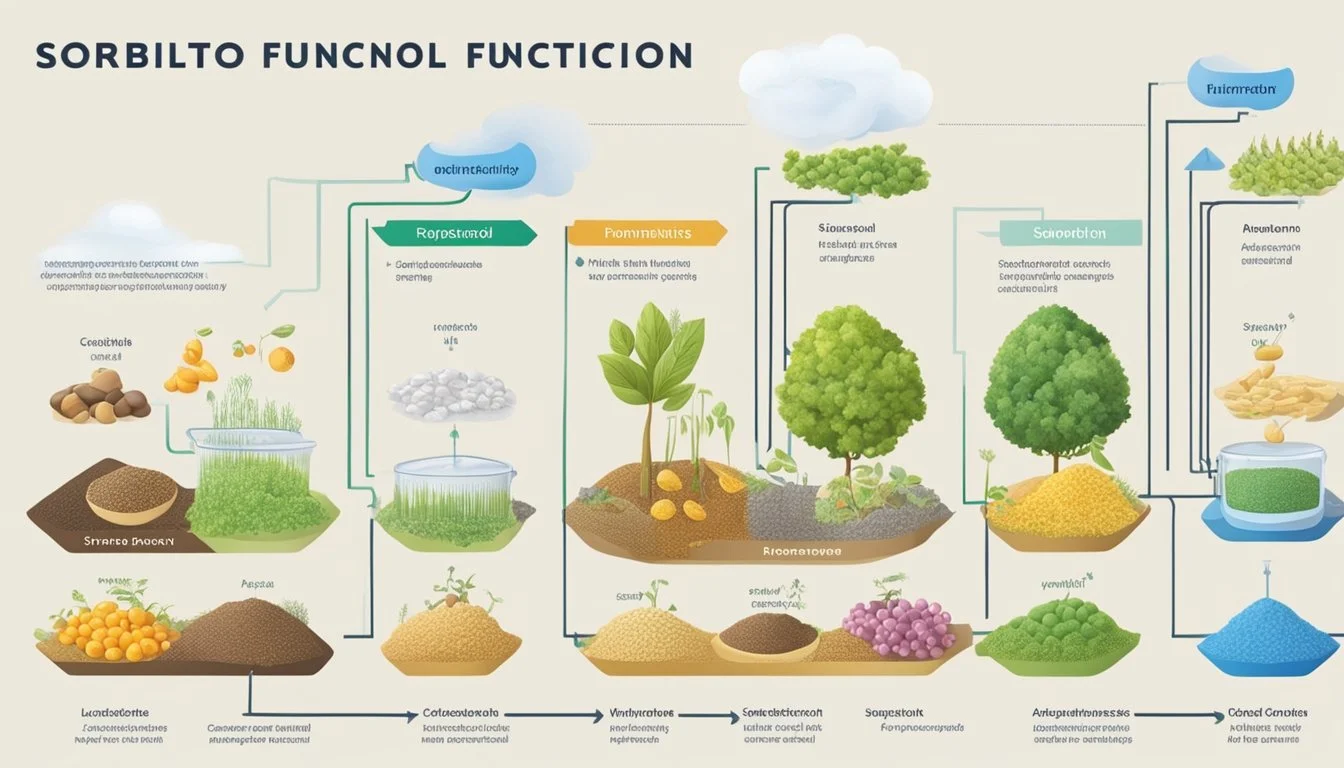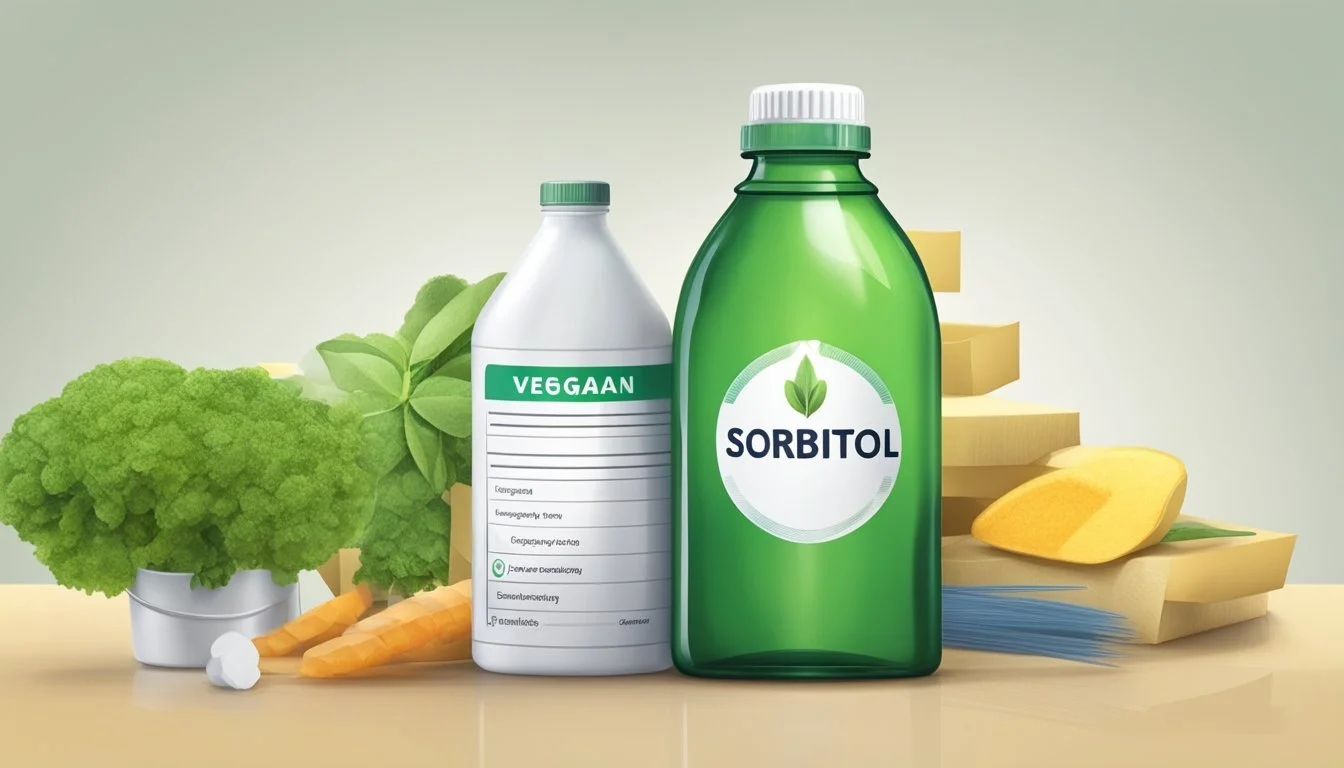Is Sorbitol Vegan?
Unveiling the Truth About This Sweetener
Sorbitol is a sugar alcohol commonly used as a sweetener in a variety of food products and serves as an alternative to sugar. Derived from glucose, which is typically extracted from plant starches like corn, sorbitol provides a lower calorie option for those looking to manage their sugar intake. As it is sourced from plants and its production process does not involve animal-based substances, it is widely regarded as suitable for a vegan diet.
The interests in vegan products have escalated, and consumers often scrutinize ingredients to ensure they align with vegan principles. Sorbitol's vegan status is particularly significant in the market with the growing demand for such products. It is crucial for manufacturers and consumers alike to identify ingredients that meet vegan standards, and sorbitol's plant-based origin meets these criteria without any known association with animal-derived processing aids.
What Is Sorbitol?
Sorbitol, a type of sugar alcohol, is often utilized as a sweetener in various food and beverage products. It derives from a process called hydrogenation of glucose, which is commonly extracted from corn syrup.
Unlike traditional sugar, sorbitol contains fewer calories, making it a popular sugar substitute for those seeking lower-calorie alternatives. It provides about 60% of the sweetness of regular sugar, contributing to its widespread use in sugar-free and dietetic products.
Sorbitol also occurs naturally in many fruits and vegetables. In addition to being used as a sweetener, it has practical applications in the medical field as well as in personal care products due to its ability to retain moisture.
When included in foods, sorbitol offers the following benefits:
Lower caloric content: It has approximately two-thirds the calories of table sugar.
Sweetness: It maintains a level of sweetness that is satisfactory for most sugar-free or no-sugar-added formulations.
It is essential to note that although sorbitol is a beneficial sugar alternative, it should be consumed in moderation to avoid digestive discomfort, as it is not fully digested in the small intestine.
Overall, sorbitol is a versatile ingredient, frequently chosen by the food industry for its sweetening and moisture-retaining properties, while also being compatible with vegan diets as it does not involve animal-based substances in its production.
Sorbitol Sources and Production
Sorbitol is predominantly derived from plant sources, with commercial production utilizing advanced manufacturing processes. This section explores its natural occurrence as well as the industrial procedures for synthesizing this sugar alcohol.
Natural Occurrence of Sorbitol
Naturally, sorbitol is found in various fruits, including apples, pears, peaches, and apricots. It also occurs in certain vegetables and seaweeds. While its presence in nature is widespread, industrial needs for sorbitol necessitate its extraction and synthesis from more abundant sources, such as starch derived from corn.
Industrial Production and Synthesis
The industrial production of sorbitol follows a sequence of steps. It starts with the extraction of glucose from starches, primarily from corn, through a process called hydrolysis. Once the glucose is available, it undergoes hydrogenation, which involves the conversion of glucose to sorbitol using a catalyst under high pressure and temperature. The hydrogenation step is critical and must be precisely controlled to ensure the quality and purity of the sorbitol produced.
After hydrogenation, crystallization occurs, where sorbitol is purified and formed into crystals. These crystals can then be used in various products as a low-calorie sweetener or a humectant to retain moisture. The manufacturing process of sorbitol is vegan-friendly as it does not involve any animal-derived substances. However, it is essential for consumers to check individual product labels, as some may have additional, non-vegan ingredients.
Sorbitol in Foods and Personal Care
Sorbitol is a versatile sugar alcohol used as an additive in numerous food items and personal care products due to its stability and moisture-retention properties.
Common Food Products Containing Sorbitol
Sorbitol is frequently utilized as a low-calorie sweetener in various food products. It is heat-stable and retains moisture, making it an ideal ingredient in baked goods like cakes and cookies, where it provides sweetness without contributing to sugar's adverse health effects. In addition to baked goods, sorbitol is common in confectionery items such as chewing gum and chocolates. It helps maintain freshness and soft texture, extending the shelf life of these items.
Furthermore, sorbitol is often found in frozen desserts, including ice cream, where it prevents crystallization and improves texture. Beverages may also contain sorbitol, particularly those targeted at individuals managing their sugar intake, as it provides a sweet taste without the same metabolic impact as sugar.
Sorbitol in Cosmetics and Personal Care
In the realm of personal care products, sorbitol serves multiple functions. It is a humectant, meaning it helps retain moisture in cosmetics, such as lotions and creams, contributing to hydration and improved skin feel. The stability of sorbitol under various conditions also makes it a preferred ingredient in personal care products, where it can be found in toothpastes and mouthwashes for its moisturizing properties and ability to enhance flavors without contributing to tooth decay.
Sorbitol's non-cariogenic feature, which means it does not cause cavities, is particularly valued in oral care products. Its inclusion in toothpaste and mouthwashes aids in the moistening and flavoring of these items without damaging the teeth, an aspect significant for maintaining oral health.
Vegan Status of Sorbitol
The assessment of Sorbitol's vegan status involves understanding its derivation and the labeling mechanisms that confirm its suitability for a vegan diet.
Sorbitol Derivation and Veganism
Sorbitol is a sugar alcohol derived from plant-based sources, such as cornstarch, and is often utilized as a sweetener in various food products. From a vegan standpoint, Sorbitol is considered vegan-friendly due to its plant-based origin and the absence of animal-derived substances in its production process. This source and production method align with the principles of veganism, which exclude all forms of exploitation of, and cruelty to, animals for food or any other purpose.
Labeling and Identifying Vegan Products
Ingredient Labels: Consumers who follow a vegan diet should look at ingredient labels for Sorbitol and other components to ensure they do not contain animal products.
Certification: Products labeled with certified vegan logos provide assurance of their vegan status, indicating that they do not contain any animal-derived ingredients and have not been tested on animals.
Precaution: In the absence of vegan labels, individuals may need to conduct further research or contact manufacturers to confirm the vegan-friendly nature of a product containing Sorbitol.
By examining the source of Sorbitol and scrutinizing product labels, vegans can determine the suitability of Sorbitol-containing goods for their diet.
Health Considerations and Dietary Impact
When considering sorbitol as part of a vegan diet, it's important to understand its influence on diabetes management, gastrointestinal effects, and nutritional profile. This section provides targeted insight into the specific health and dietary impacts of sorbitol.
Sorbitol and Diabetes Management
Sorbitol, a sugar alcohol, is often utilized in sugar-free products as a low-calorie sweetener. Its lower glycemic index means it has a less significant impact on blood sugar levels compared to regular sugar, making it a safer alternative for individuals managing diabetes. However, because it still contains calories, moderation is key, as excessive consumption can lead to unexpected increases in blood sugar.
Gastrointestinal Effects
The body metabolizes sorbitol more slowly than sugar, which can lead to gastrointestinal symptoms such as bloating, diarrhea, and digestive issues in some individuals. For those with irritable bowel syndrome (IBS), sorbitol's laxative effect may exacerbate symptoms. It's recommended that individuals with digestive health concerns monitor their response to sorbitol closely.
Nutritional Profile
While sorbitol provides sweetness with fewer calories than conventional sugar, it is not nutrient-rich. It can act as a prebiotic, promoting the growth of beneficial gut bacteria. This potential benefit to digestive health should be weighed against its potential to cause digestive discomfort. Balancing intake and listening to one's body is essential when incorporating sorbitol into a vegan diet.
Sorbitol in Pharmaceuticals
Sorbitol serves dual roles in pharmaceuticals, functioning both as an excipient and a therapeutic compound. As an excipient, it assists in the delivery of active ingredients, while also offering its laxative properties when used as a medication.
Usage in Medications
Sorbitol is prominently used in pharmaceutical formulations for its non-cariogenic sweetening properties. It is often included in oral care products, such as toothpaste and mouthwashes. In medications, sorbitol acts as a laxative to alleviate constipation and is found in syrups, elixirs, and chewable tablets. It serves both as a sweetener and a textural agent, providing a palatable taste and a desirable mouthfeel in drug products.
Sweetener: Enhances flavor in oral medications.
Laxative: Relieves constipation by drawing water into the large intestine.
Side Effects and Cautions
While sorbitol is generally considered safe for consumption, consumers should be aware of potential side effects. In some individuals, excessive intake can lead to gastrointestinal discomfort, including gas, diarrhea, and stomach pain. As an osmotic laxative, sorbitol increases water retention in the bowel, which, though effective in treating constipation, may contribute to dehydration if misused.
Gastrointestinal discomfort: Possible when consumed in large amounts.
Dehydration risk: Monitor dosage to prevent water imbalance.
Sorbitol's Functional Roles and Alternatives
Sorbitol serves as a multi-functional ingredient often utilized as a sweetener and humectant in various products, offering benefits such as extended shelf life and moisture retention without adding extra sugars.
Humectant and Moisture Retention
As a humectant, sorbitol excels in its ability to retain moisture, prolonging the shelf life of food and personal care products. It stabilizes them by controlling moisture levels, which helps maintain product consistency and quality over time. This sugar alcohol is especially valuable in products like baked goods, candies, and cosmetics, where it helps to preserve texture and prevent drying out.
Alternative Sugar Alcohols and Sweeteners
Alternative sweeteners to sorbitol include other sugar alcohols like erythritol and xylitol, which also act as low-calorie sweeteners. These alternatives provide a sweetness similar to sorbitol and have similar functional properties, such as moisture retention and shelf life extension.
Erythritol: It has about 70% of the sweetness of sucrose yet is almost non-caloric, does not affect blood sugar, and has minimal digestive side effects.
Xylitol: Similar to erythritol in function, xylitol is as sweet as sucrose and often found in sugar-free chewing gums due to its dental benefits.
Both erythritol and xylitol also contribute to the stability of products as they do not break down under heat, unlike some artificial sweeteners. While sorbitol is a versatile and widely used carbohydrate, consumers seeking different nutritional profiles or physical properties can often find suitable alternatives in these other substances.
Safety and Regulatory Aspects
Sorbitol, a food additive, is subject to rigorous safety evaluations and regulatory standards. The primary focus in this section is how Sorbitol is governed by the FDA in the United States and how it aligns with international safety standards.
FDA Regulations on Sorbitol
Food and Drug Administration (FDA) clearly categorizes Sorbitol under the Generally Recognized as Safe (GRAS) list, which includes substances with a proven safety record. Sorbitol must adhere to specific regulations for its use in food products:
It must be accurately listed on food labels.
Its utilization should conform to good manufacturing practices.
There are maximum usage levels depending on the product category.
The FDA monitors these regulations to ensure consumer safety and proper labeling for informed decision-making.
International Safety Standards
Internationally, safety standards for Sorbitol are set by bodies such as the Codex Alimentarius Commission and the European Food Safety Authority (EFSA). These standards generally concur with FDA guidelines, ensuring Sorbitol is safe for consumption when used as intended. Key points include:
Sorbitol must meet purity criteria.
It is evaluated for any potential health effects.
Continuous monitoring is enforced to detect any adverse reactions from its consumption.
Considerations for Optimal Use
When incorporating sorbitol within products, appropriate usage rates and understanding its effects on the formulation are pivotal.
Consuming Sorbitol in Moderation
Sorbitol usage should be moderated due to its potential laxative effect when consumed in high quantities. Consumers are advised to observe their individual tolerance levels to sorbitol and adjust their intake accordingly.
Recommended Moderation: Balance intake to avoid digestive discomfort.
Individual Preferences: Tailor consumption to personal dietary needs and preferences.
Influence on Product Formulation and Shelf Life
Sorbitol plays a critical role in product formulation. Its stability across a range of temperatures helps in maintaining the desired consistency and texture in food products. As a humectant, it also helps to stabilize moisture content, thereby enhancing shelf life.
Shelf Life: Contributes to longer preservation of products.
Temperature and Stability: Remains stable under various temperature conditions.
Role in Stabilizing: Acts as a humectant to retain moisture and keep products fresh.
Environmental and Ethical Aspects
When exploring the environmental and ethical aspects of sorbitol as a vegan product, it becomes imperative to consider its sourcing and sustainability alongside the ethical paradigms that guide veganism.
Sourcing and Sustainability
Sorbitol is often sourced from natural ingredients such as berries, corn, and potatoes. The sustainability of these sources can vary depending on agricultural practices. When sourced from high-yield crops like corn, which may be genetically modified, questions about sustainability and environmental impact arise. Environmentally conscious vegans might seek sorbitol derived from organic crops to ensure minimal environmental disturbance.
Natural Sources: Obtained primarily from plant-based materials, sorbitol's natural origins make it a renewable additive.
Production Impact: The manufacturing process must be evaluated for its carbon footprint and resource consumption to gauge overall sustainability.
Ethical Considerations for Vegans
For vegans, sorbitol's status hinges not only on its plant-based origin but also on the nuances of its production. As an additive in many confections and other food products, it's essential for it to align with vegan ethical beliefs that oppose animal exploitation and encourage minimal harm.
Animal Testing: The assurance that no animal testing was involved in the development of sorbitol is crucial for maintaining its vegan certification.
GM Crops: Some vegans avoid additives derived from genetically modified organisms (GMOs) due to ethical concerns about the manipulation of natural entities and potential environmental impacts.



